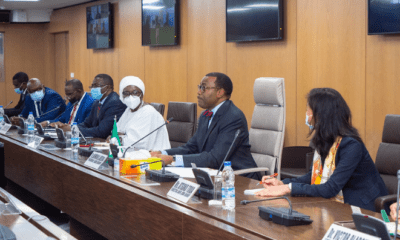The strategy proposes bold reforms in the management of public finances to eliminate revenue ‘leakages’ and ensure an efficient, productive, and transparent use of scarce resources. The paper comes amid the ongoing Covid-19 pandemic, which has exposed African countries’ weak public financial management and service delivery, as well as vulnerability to exogenous shocks.
“This event comes at a crucial time as African countries look to recover from the crisis caused by the Covid-19 pandemic. It is difficult for Africa to take off without transparent and accountable governments and strong institutions capable of driving a prompt, sustainable and inclusive recovery and ensuring economic resilience,” said Vera Esperança dos Santos Daves, Angola’s Minister of Finance at the virtual launch of the strategy, attended by government ministers, and representatives of the private sector, academia and international institutions.
In a speech read on her behalf by Secretary of State for Treasure and Finance, Dr. Ottoniel Santos, the minister described the Strategy as “a milestone.”
“We are very delighted that it will contribute to promoting public sector effectiveness at the national and subnational level, thus stimulating structural transformation in our throughout the continent, and ensuring that our people participate in public sector governance,” she said.
SEGA also proposes tougher anti-corruption measures in the public and private sectors. This includes the establishment of systems to monitor and hold governments accountable for the delivery of public service and the elimination of corrupt practices.
“The African Development Bank is itself uniquely positioned to implement this new strategy, building on its unparalleled knowledge and understanding of the African context, and also on the Bank’s credentials in the area of good governance,” said Swazi Tshabalala, the African Development Bank’s Acting Senior Vice President.
Tshabalala hopes that governments will embrace the reforms recommended in SEGA “at this critical time the African economy is gearing itself to build back better and greener.”
“The quality of life of our citizens depends on it. The future of our continent depends on it,” she said.
The strategy document also outlines interventions to strengthen African governments’ domestic mobilization of resources, even as pandemic responses have increased debt levels and harmed economic productivity.
Better governance is expected to enable countries to strengthen macroeconomic stability, foster a business enabling environment, and improve the efficiency of public spending and investments, according to the strategy document. SEGA will cover the 2021-2025 period.
Abdoulaye Coulibaly, the Bank’s Director of Governance and Public Financial Management said the Strategy document refocuses the Bank’s fundamental priorities on the most effective areas for improving African economic governance.
“With SEGA, we are consolidating on our past successes and leveraging the lessons learned from our experience working on governance,” he said.
SEGA was developed through consultation with governments and non-state actors across Africa. It replaces the Bank’s Governance Strategic Framework and Action Plan (GAP-II), which covered the 2014-2020 period.
Approximately a fifth of the Bank’s loan portfolio covers governance projects, including macroeconomic and public financial management, sector governance, and enhancing the business climate.
In the last three years, the Bank has approved 80 governance projects totaling $7.85 billion.

































